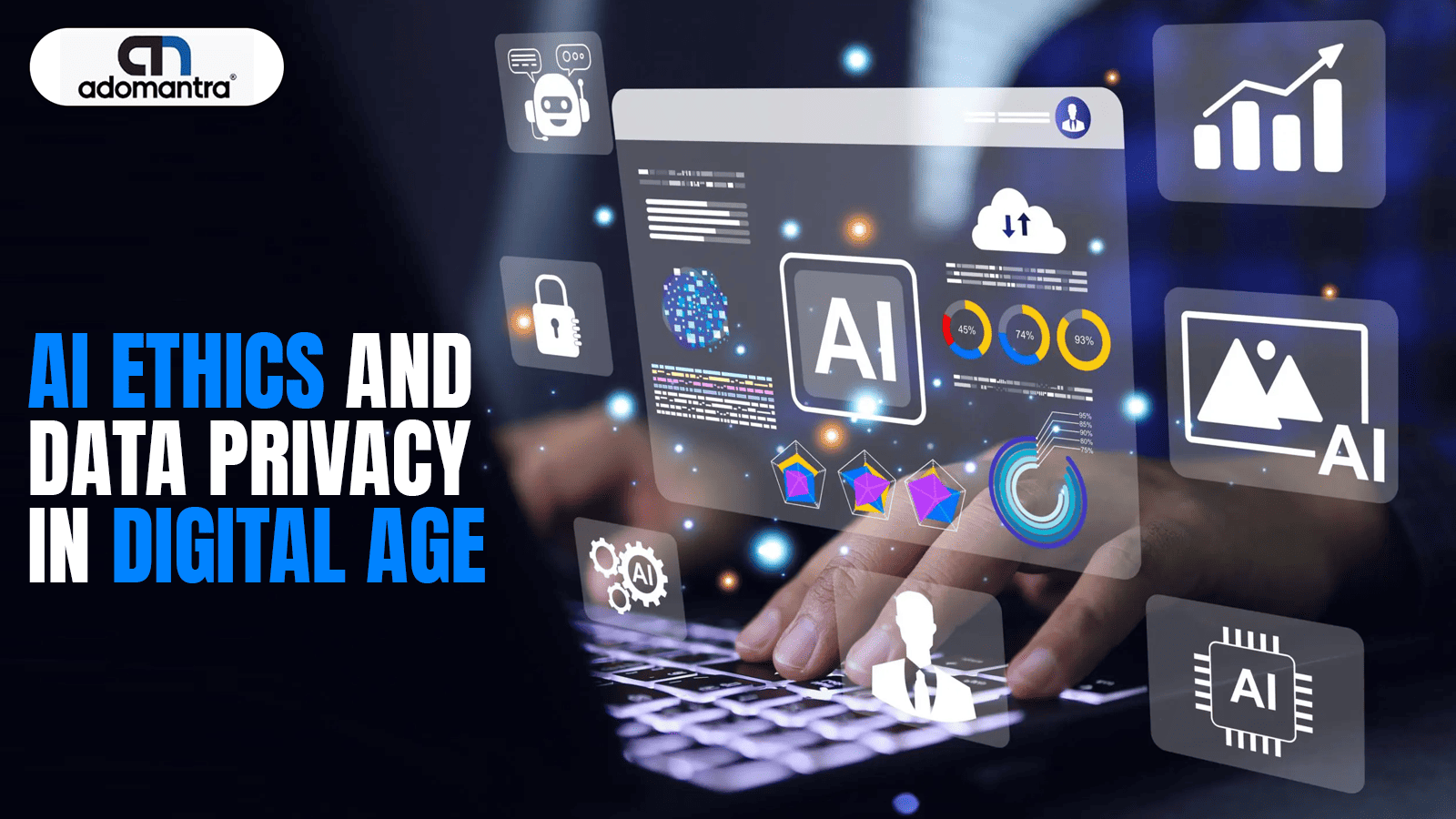
AI Ethics and Data Privacy in Digital Age
We all know how AI (Artificial Intelligence) has been powerfully redefining the world with its excellent solutions while revolutionizing every aspect of human life. Whether you pick healthcare, finance, entertainment, agriculture, or education, you’ll find its excellence in every field. Since, individuals are heavily consumed with AI’s groundbreaking offerings, making life simpler, productive, and efficient at every possible turn, the importance of AI ethics and data privacy measures cannot be overstated.
Understanding the Core Principles of AI Ethics
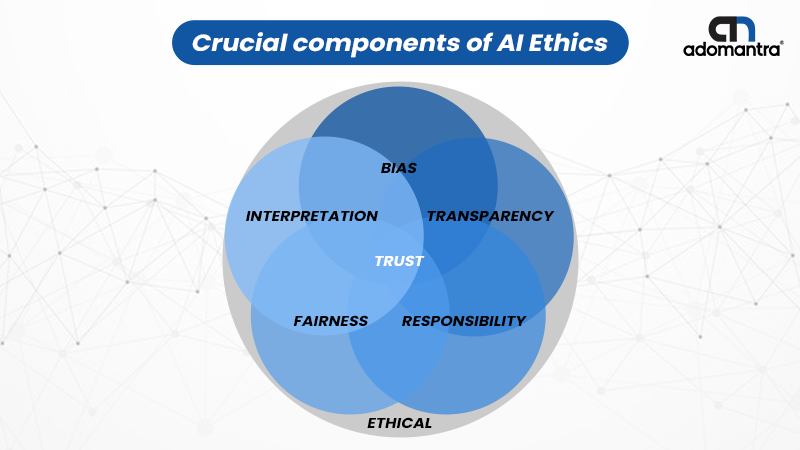
There’s no doubt about how useful AI has become in our everyday life, but it has also raised complex moral, legal, and social concerns, especially regarding how personal data is collected, used, and protected. The core principles of AI Ethics majorly revolve around a framework that guides the design, development, and deployment of artificial intelligence systems. It’s because if data stored in AI systems is biased, incomplete, or inadequately protected, then it may pose certain risks.
Since AI continues to grow its influence, understanding the ethical principles guiding its development and use becomes more important than ever. The Core AI Ethical Principles involve:
- Transparency: This refers to understanding how AI systems function and make decisions. There are several AI models, which operate as black boxes, producing results without clear explanations. To achieve public trust and accountability, AI developers can focus on offering transparency to its users and let them know why a particular decision was made.
- Accountability: This is among the most pressing challenges of AI usage. The AI systems must have clearly defined responsibility structures, preventing it from making harmful or incorrect decisions, such as denying a loan or misdiagnosing a patient, or even giving misleading advice. This can be done via defining liability, establishing reporting mechanisms, and providing recourse for affected individuals.
- Fairness and Non-Discrimination: There should be an absolute fair treatment provision to all the individuals, irrespective of their race, gender, religion, or even socioeconomic situation. However, if algorithms are trained on biased data, they can reinforce or even worsen existing inequalities. Therefore, fairness should be ensured conducting regular audits.
- Privacy and Data Protection: Data is central to AI, and the misuse or overuse of personal information poses serious privacy risks. It's imperative that all the AI models must ensure strict data protection practices, including informed consent, data minimization, and secure storage.
- Beneficence and Non-Maleficence: The sole purpose of AI is to enhance human life and benefit society, while not causing any unintentional harm. A careful risk assessment is a must during its development and implementation.
- Human Autonomy: AI is meant to support, not substitute, human decision-making. Upholding human autonomy involves ensuring individuals stay informed and retain the authority to make final decisions in essential domains such as healthcare, law, and finance.
The Ethical Dilemmas in AI Deployment
Below are some of the most pressing ethical dilemmas faced in AI deployment:
- Bias and Discrimination
AI trained on skewed data can reinforce societal biases, leading to unfair outcomes in hiring, policing, and finance. - Lack of Explainability
Opaque AI models that can't justify their decisions risk eroding public trust and transparency. - Autonomous Decision-Making
AI systems making critical decisions like in healthcare or driving raising accountability and moral responsibility concerns.
Data Privacy in the Digital Age
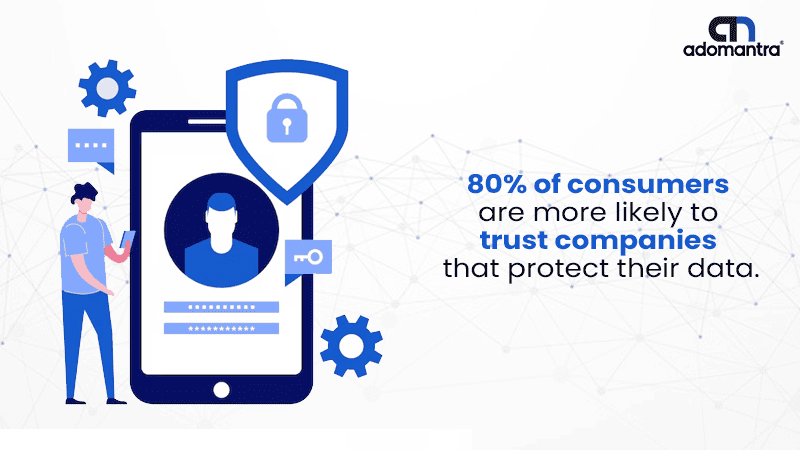
Data collection fuels algorithms, personalization engines, and predictive models. Therefore, it's extremely important that the collection and use of this data should not raise any privacy concerns.
The main privacy concerns linked with AI include:
- Diverse data collection as AI accesses personal, behavioral, biometric, and location data, often without users’ full awareness.
- Surveillance risks as AI-enabled surveillance in public spaces threatens civil liberties, especially under authoritarian governance.
- Cybersecurity threats as weak AI security can lead to data breaches, compromising sensitive information and eroding user trust.
Global Regulatory Landscape
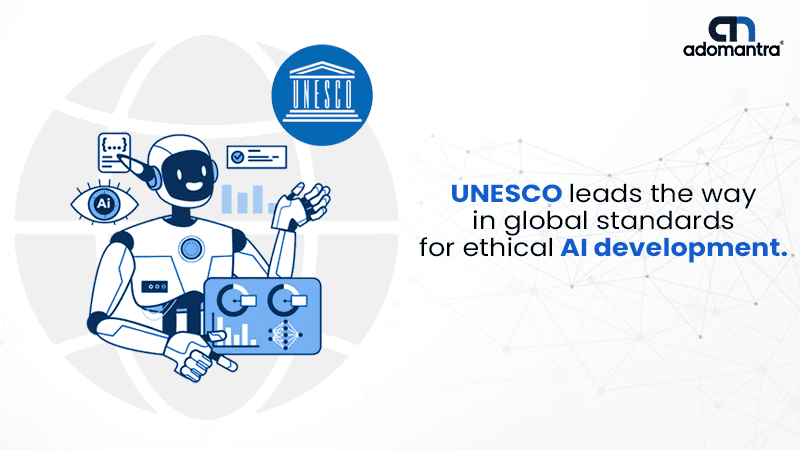
UNESCO has long championed the ethical development of science and technology, setting global standards to guide progress responsibly. Governments and regulatory bodies are beginning to address the challenges posed by AI and data privacy:
- The European Union’s GDPR sets a high benchmark for data protection and has influenced global standards.
- The EU AI Act is among the first regulatory frameworks specifically targeting the ethical use of AI.
- The United States’ CCPA and India’s Digital Personal Data Protection Act provide strong frameworks for data ownership and user rights.
The Business Case for Ethical AI
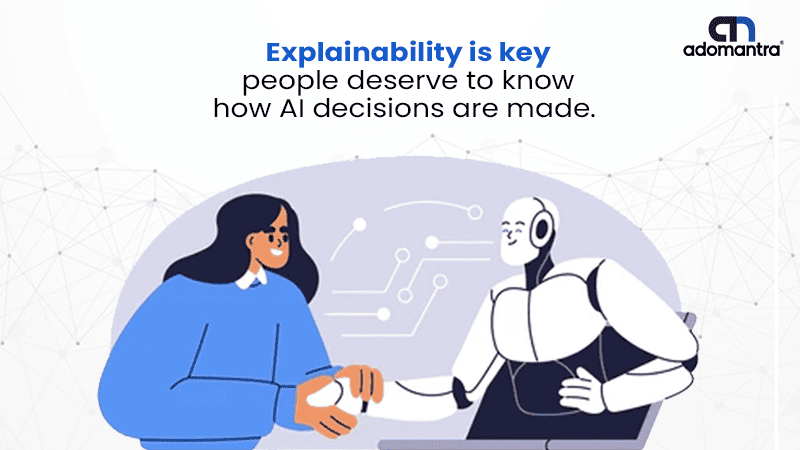
Ethical AI is not just a regulatory requirement—it’s a competitive advantage. Consumers are increasingly favoring brands that prioritize transparency, user privacy, and fairness. Ethical practices build trust, reduce legal risks, and contribute to long-term brand loyalty.
Businesses must integrate AI ethics and data privacy into their digital strategy through:
- Regular ethical risk assessments.
- Appointing Data Protection Officers (DPOs) and AI Ethics Committees.
- Investing in responsible AI tools and governance frameworks.
Conclusion
At Adomantra, we understand that responsible data handling and ethical AI use are crucial in today’s digital landscape. As a forward-thinking agency, we are committed to:
- Comply Fully with International Data Privacy Laws
- Ethical AI Implementation
- Long term Client and Consumer Trust
Contact us today and take the first step toward ethical, data-driven digital success.
Frequently Asked Questions
1. How to protect our privacy from AI?
To protect your privacy from AI, avoid sharing any personal or identifiable information. Instead, anonymize your data or document it in plain text without sensitive details.
2. Why is privacy a problem in AI?
Privacy is a concern in AI as it often relies on large datasets containing personal information. Without proper safeguards, this data can be misused, leading to breaches and loss of trust.
3. What is the main danger of AI?
The main danger of AI lies in cybersecurity threats, data misuse, and manipulations. If left unchecked, it can lead to harmful decisions and loss of control.
4. Is AI good or bad for society?
AI can be both good and bad for society as it drives innovation and efficiency but also raises concerns about privacy, bias, and job displacement. Its impact depends on how responsibly it is developed and used.







